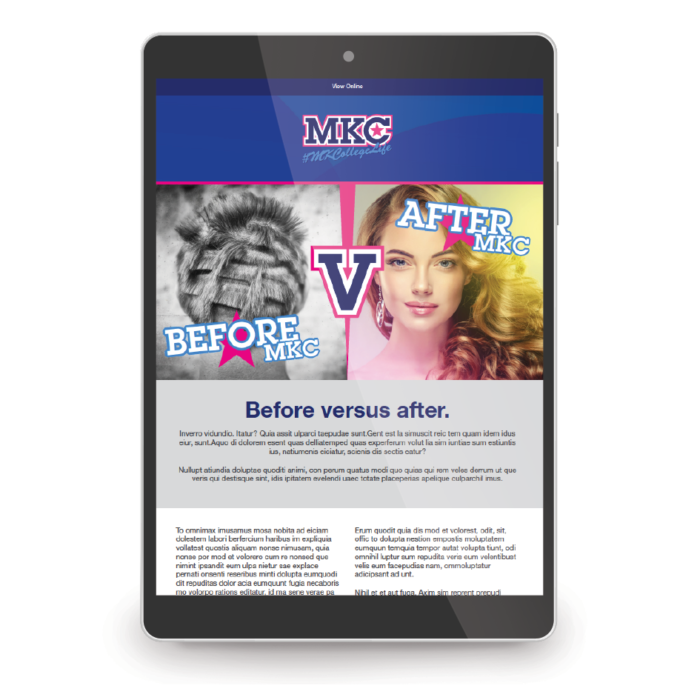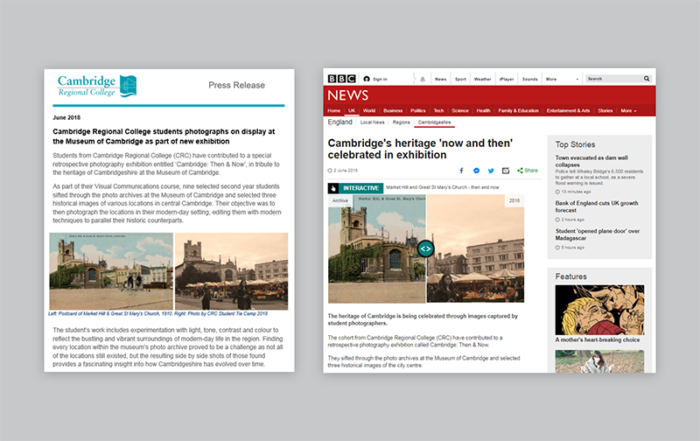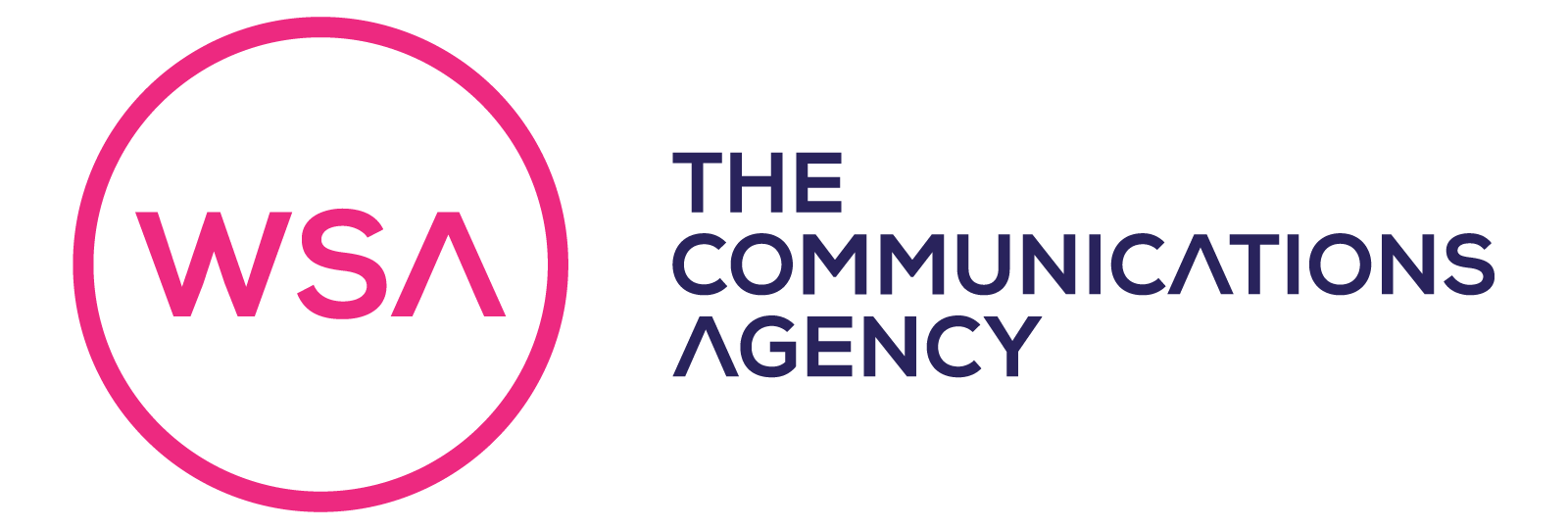Education has been a pillar of our business since we launched in 2005 and we have seen first-hand how schools and colleges are challenged by keeping up with a rapidly changing world. In order to remain relevant to the children they teach, appealing to the teachers they employ and competitive in the face of constant innovation, digital marketing has become an essential tool for schools and colleges across the UK (and worldwide).
Whether current objectives are reaching a wider audience, strengthening brand identity, improving communications and engagement with students (and parents) or something else entirely, chances are digital marketing can help in some way.
Below, we explore 10 reasons why every school and college should actively participate in digital marketing.
- Boosting the online presence of a college or school

Creating a strong online presence is crucial for schools and colleges to attract prospective students and staff effectively. By adopting various digital marketing strategies and tools, education establishments can showcase their offering, achievements and academic excellence. However, it’s not enough to have a website and social media profile – valuable information must be provided on an ongoing basis.
The school’s website serves as the primary point of contact for many prospective students and parents. Therefore, it’s essential to devise a portal that is not only visually appealing but also user-easy to navigate. A well-designed website will help students, parents, stakeholders and potential new recruits find the information they need quickly and efficiently, making a positive first impression.
This must be mobile-friendly, as many (especially younger) people only use their smartphones to browse the internet now. A responsive website design can adapt to different screen sizes, providing a seamless user experience regardless of the device used.
Facebook, Twitter, Instagram, and LinkedIn are excellent tools to enhance a college or school’s online footprint. They provide an outlet for schools to share updates, engage with the audience, and showcase their unique offerings. Creating a content calendar will also help ensure communications remain relevant, targeted, consistent and engaging.
- Tackle rumours, negativity or a crisis
One of the main reasons some schools and colleges can hesitate to launch digital marketing is the perceived risk of inviting criticism or negative comments. There are multiple ways this can be strategically dealt with including responding to direct comments to take conversations offline and suppressing negative commentary with higher volumes of outright positive activity.
Students face online pitfalls and communication challenges in everyday life, so in order to engage, guide and nurture them, the school or college they attend should be available, present and supportive in the digital realm. An online presence is now expected by students and parents alike – lacking this looks outdated at best, or uncaring at worst.
If a crisis happens – there will be an online conversation about it. Being part of the conversation through digital marketing means you can help shape the narrative whilst continuing to reinforce the messages you want to share. Knowing what to do if journalists start to call is a must and this can be made smoother if positive connections with the media have already been established through digital marketing activity.
- Position one school or college above the rest

Creating valuable and informative content can help attract and retain visitors to the school’s website and social media platforms, which is then an opportunity to get ahead of the competition in the same catchment area. This can include blog posts, case studies, videos, infographics, and more. By providing valuable information, schools and colleges can establish themselves as thought leaders and the number one choice.
Additionally, creating content that is shareable can help increase the school’s online visibility. When visitors share content on their social media platforms, it can help reach a broader audience and attract more prospective students and parents. A good example of this is our case study from MK College where a digital quiz attraction campaign was shared across social media adverts and was created to generate a ‘keep warm’ lead list using automated emails to help boost visibility of college places before GCSE Results Day. Parents and peers are usually proud to share achievements related to their children and their friends, which ensures positive activity and visible community togetherness through digital channels.
Effective Search Engine Optimisation (SEO) techniques also ensure that a school’s website ranks high on search engine results pages, increasing visibility. Using appropriate keywords is important, as well as regularly updating website content and monitoring performance analytics.
- Connecting with prospective students and parents
Schools and colleges can reach out to or devise content to attract a specific target audience of potential staff, students and parents based on their interests, demographics, and location. This ensures that the marketing efforts are reaching the right people for current objectives and can lead to higher conversion rates.
For example, schools and colleges can use Facebook ads to reach those locally or who are searching for specific programs or courses to learn or to teach. By using these methods, educators can increase their chances of generating more leads, as well as position themselves as the number one choice regionally for specific specialisms and subjects.
Digital marketing strategies will also reach a larger and more diverse audience. This is particularly important in the current educational landscape in the UK, where post-pandemic, many learners and families are seeking the best fit for their needs rather than doorstep convenience.
- Engaging with the local community

Local community engagement is crucial in building a good reputation and enhancing the college or school’s standing. Traditional media and communications still play a significant role in this (see our case study for Cambridge Regional College), but educational establishments can also use digital marketing channels to share stories, highlight local partnerships, and showcase their contributions to the community. By doing so, they will build a stronger relationship with the people living and working in the region and increase their visibility.
A blog sharing stories about students, faculty, and staff combined with social media posts that showcase involvement in local events and initiatives will only paint a positive picture, portraying an active and engaged pillar of the community – helping to attract more students and improve the overall reputation.
- Strengthening brand identity and unique selling points

A strong brand identity is crucial for schools as it helps communicate their unique selling points, values, and ethos to prospective staff, students and parents. Each piece of content, marketing material or post should reflect how the school or college desires to be seen and perceived.
Using a consistent visual style and messaging tone across all channels, including the website, social media, emails, and advertisements, helps create a cohesive and recognizable brand identity. This can also be achieved by using visual prompts, logos, colours, fonts, and imagery.
Every school and college have unique aspects that set it apart from their competition. It could be exceptional academic programs, extracurricular activities, or faculty expertise. Highlighting these stories through engaging digital marketing content will only help the school stand out and attract interest from those with similar views, leanings and ambitions.
- Building trust and credibility

Digital marketing can be used to showcase achievements, accreditations, and testimonials, building trust and credibility among the target audience.
For instance, featuring testimonials from alumni and alumnae, current students, parents and teachers, can be a powerful way to showcase the school’s positive impact on the community. Similarly, highlighting pupil achievements, such as winning academic competitions or receiving accolades, can help build a positive reputation for the benefits of attending the school.
Most parents want the very best for their children or an education that is tailored to specific needs. Digital Marketing offers the chance to share that story and build trust through consistency. A convincing open day can work wonders, but you only get one chance. Digital Marketing ensures that opportunities to sell the school or college remain available all year round.
- Modern expectations and protection
By using digital channels, schools can efficiently share essential information with stakeholders in a timely and efficient manner. For instance, schools can use social media platforms to share updates about school events, academic progress, accomplishments, and important deadlines.
Nobody wants to think about remote lockdown learning and potential future pandemics, but preparedness for these urgent moments is now much more desirable to audiences. Schools and colleges have become more technologically robust and this should be reflected in marketing, to show capability and preparedness in the face of future unforeseen challenges.
Furthermore, schools can use digital marketing assets to provide stakeholders with easy access to important resources handbooks and information for teachers and administrators. This makes it easier for everyone to stay informed about what’s happening at the school or college and to get in touch with the right people when they need to.
- Encouraging feedback and interaction

Digital marketing platforms such as social media and blogs provide opportunities for open dialogue and interaction between schools and their stakeholders. This engagement can lead to valuable feedback and suggestions for improvement, fostering a sense of community and inclusivity.
As touched upon previously, there can be a fear that platforms will be used only as a means of venting and disruption, but if positioned correctly, this can help schools to build stronger relationships with their stakeholders and to create a more positive and supportive culture. Whether it be interactive votes and polls, launching specific groups or surveying the audience, there are countless activities that schools and colleges can remain in control of, give a voice to those in their community and portray themselves as open and welcoming to new prospects.
- Providing timely updates and announcements
Using digital channels to share updates and announcements allows schools to reach their stakeholders quickly and effectively. This ensures that everyone stays informed about important events, deadlines, and changes within the school. For instance, social media channels might share real-time updates about weather-related closures, such as snow, or to remind parents about upcoming parent evenings and plays/performances. This can help to reduce confusion and ensure that everyone is on the same page.
Final thoughts
By enhancing online presence, reaching a wider audience, strengthening brand identity, and improving communication, schools can effectively attract prospective students, parents and staff. This will nurture their standing in the community and contribute to achieving long-term growth and success.
Schools that embrace digital marketing will be better equipped to navigate the challenges of the next decade and by leveraging communications strategies, schools can expand their reach, enhance their reputation, increase enrolment and position themselves as an employer of choice.
A consistent visual and messaging style, showcasing unique selling points, building trust and fostering credibility are just some of the endless reasons why digital marketing has become a crucial aspect of education strategies in a highly competitive and technology-driven world.
